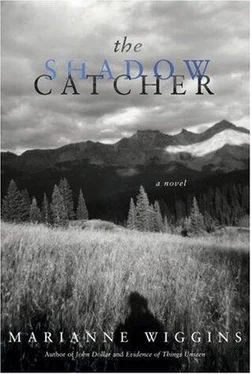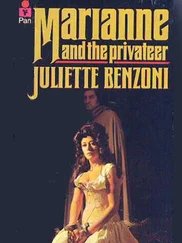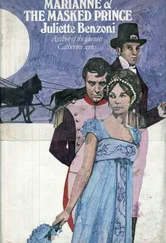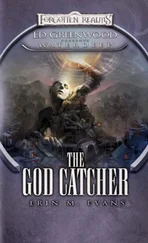“He’s wearing a wedding band, so he must belong to someone .”
“He left his car in my daughter’s parking lot. I was thinking I could search it for his address. Then they told me they had found his closest living relative, and that you were on your way.”
We stare toward the open door of the room where Mr. Wiggins lies unconscious.
“I saw his driver’s license,” I mention. “I know where he lives.”
We exchange another look, and Lester weighs the old man’s house keys in his hand. “Middle of the night,” he mentions. “Can you stay ’til daylight?”
“Sure.”
“I don’t want to leave, in case he wakes up.”
“I can understand that”
“I have a duty to him.”
“Yep.”
“Even if he has a wife, she would be very old, like him. We don’t want to wake her up and scare her. Another heart attack.”
“—still. I think she’d like to know. Given his condition.”
“Better that we wait ’til morning.”
“—okay. You’ve got a point. I know what those unexpected calls are like. The news that you don’t want to hear.”
He studies me. “—your father?”
“—for starters.”
“How did he die?”
“Suicide. — yours?”
“—in his sleep. We didn’t know his age but figured ninety-seven.”
“And he really knew Edward Curtis?”
“Owns His Shadow scouted sites and translated for Mr. Curtis in ought-eight, ought-nine. Owns His Shadow spoke the English Mr. Curtis liked. He had been transported from the reservation to the Carlisle School in Pennsylvania when he was still a boy, so he had learned the white man’s ways before he broke with all of that and made his brave escape back to the Navajo. I have a picture of them. Owns His Shadow and Mr. Curtis.”
“I would like to see it.”
“Well it’s home in Tuba.”
“I haven’t been to Tuba City for a while.”
Again, that focused look. “What were you doing in my nation?”
“Research.”
“—on the rez?”
I pick up The Shadow Catcher and hold it so the spectral image in the stone faces both of us. Invisible at first, the image forms before my eyes the longer that I look at it, as if it were exposed but still invisible light held captive on a page of photographic paper floating in the shallow pool of a transparent chemical bath. After several seconds a familiar likeness gathers in the fine lines of the stone. “ This man, actually. Curtis.” I turn the bracelet in my hands, appreciating every subtlety. “This is really beautiful,” I say.
“Father said that Curtis thought so, too. I’d like to know how he let it go from his possession.”
“Well he’s been dead for fifty years. And in his last thirty years or so he was always scrambling just to make ends meet. Lost everything. Gave away the copyrights to all his American Indian work to J.P. Morgan’s heirs to cancel out his debts to them. In the end he went a little crazy and spent a couple decades right here in Nevada just prospecting for gold.”
“Father lost all touch with him.”
“I’m not surprised. Aside from that one picture that you have of them, did he photograph your father?”
“ Owns His Shadow ?” Lester grins. “Father would not let another steal his image.”
“But you said there is a picture—”
“In it, father looks away. And points. Like this.” He swivels on the bench and points away from us, toward a sign at the opposite end of the hall that reads EMERGENCY EXIT.
“But your interest is with Curtis, not my father,” he intuits.
“Used to be. I wrote a book about him.”
“And it’s finished?”
“Yes.”
“And you talked to those who sat for him and had their shadows stolen?”
“No.”
He makes a little bubbling sound deep in his throat and whispers, oh . He looks toward the open door into the dying old man’s room again. “You should have waited.”
“For what?”
He inhales deeply and resumes the posture I had found him in, but with his eyes wide open now, not closed, his eyes locked on the open door.
“Until the silent ones have spoken,” Lester murmurs.
The great Seattle fire started on the lowest floor of a wooden building owned by Mrs. M. J. Pontius on the northwest corner of Front and Madison Streets in the city’s harbor district.
Jimmy McGough, a paint store operator, leased the lower floors from Mrs. Pontius and the first fiery accusations pointed to an un-tended glue pot in his back room, but the spark that set the conflagration roaring actually leapt to life from the hands of John E. Back, a careless cabinetmaker, working with a combustible shellac one floor below.
The paint store only added volatility to what would have been a bonfire, anyway, with nothing but rows of timber buildings standing between the initial tongue of flame and the quenching water of the harbor. Twenty-nine blocks, in total, burned, destroying the entire business center, the railroad terminals and all but four of the port city’s many wharves. Seattle’s population on the morning of the fire was estimated between twenty and thirty thousand and it had only recently instituted regulated ferry service on the Puget Sound as well as a civic agenda to replace hollowed-out logs with lead pipes in the sewer system. There was an electrified trolley in both the lower and upper streets, but indoor plumbing was a rarity and a recurrent tidal ebb of sewage perfumed the smudgy mudflats by the shore. There were two newspapers in English, another in Norwegian, and an occasional lynching of an Indian, a Chinaman or a Negro. After the fire came the first of many population booms, the city’s numbers rising to 42,837 in 1890 owing to the open importation of cheap labor to rebuild the city. The governing white class welcomed even more Chinese and Indians into the population as exploitable non-union crews and within a decade the Klondike gold rush doubled the city’s numbers again. By 1910, twenty years after the fire, the city’s population was a quarter of a million. Meat packing, fur, export-import, timber, shipbuilding, breweries and the U.S. Gold Assay Office gave Seattle an annual income of more than $174 million before the century was done, but it was the summer fire of 1889 that lighted the Sons of Profit’s firecracker fuse. The fire, it turned out, was good : it killed the rats. And, like other city fires — the Fire of London, the Chicago fire — the Seattle fire made the city reinvent itself, for the better. No more timber roofs, plank sidings, cedar shakes and clapboard shanties — having had its heart destroyed, the city turned to stone, refashioned its foundations with rock-solid cornerstones, replaced its former wooden public face with brick and slate and granite.
As Clara did, after Edward left her.
She strengthened her resolve and steeled her heart with harder stuff — burned once, she would not allow herself to be the victim of that firestorm again.
But here he stood, his hands around the halter of the buckboard’s lead, his eyes intent on the woman in the driver’s seat above him. He had been twelve days on the road, on foot, living in the rough and still, she couldn’t help but note, his fingernails were shaped and clean, his beard was trimmed and he had nothing of that ruddy unkempt look that displaced travelers carry on them.
“Where are you going?” he asked her, while his eyes begged a different, deeper question.
“Where did you go?” she countered.
And then, seeing his perplexity: “— without a word ?”
“What would you have had me say?”
“—‘good-bye.’ ‘Thank you.’ ”
Читать дальше











